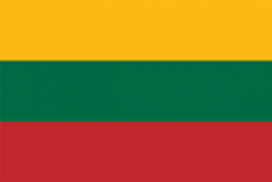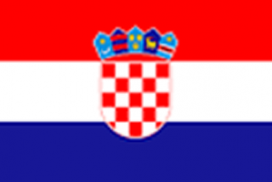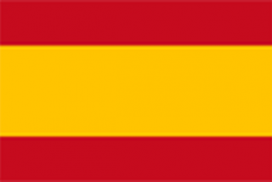Emanuele (an Italian citizen) and Joanna (a Polish citizen) live together in Bari. Emanuele is a hard worker and earns good money, they are happy together and they decide to build a family. When little, blond and sweet Agniezka is born on June 2010, everything seems just perfect.
As time goes by, however, things slowly start changing and when Emanuele loses his work and cannot provide for the usual standard of life, Joanna feels her (and her daughter’s) wellbeing at risk.
Tired of seeing Emanuele hang around, hopelessly in search of a job, seeing her relation deteriorating every day, Joanna suggest that she should take a break and visit her parents in Poland, so as to introduce Agniezka to her grandparents, to the same-aged cousins and to the enlarged family, whom she knows very little of. She promises to return at the end of the summer. Emanuele agrees, as he is also looking forward to being sometime on his own, without having someone sitting there and judging on him every day. Joanna and Agniezka leave for Warsaw the 20th of May 2015.
In September, when they were supposed to be back, Joanna lingers with some excuses drawn on avoiding extra costs and not having money for flying back. She asks to stay until December. By the end of the year she further argues that they should consider to move all to Poland, as the life there is much cheaper than in Italy and they could all have a better standard of living; the discussion drags behind for some other weeks, when she finally makes it clear that she and the girl are not coming back to Bari. Not until he has found a job, at least.
Emanuele is taken aback. He is hurt in his pride and wants his girls back.
He seeks for advice and for a good counsel to help him. He is a bit confused but in the end he triggers the Italian Central Authority, and he claims return of his daughter, hoping the mother will follow her. The application for return is filed before the court in Warsaw on the 20th of June 2016.
On February 2017, the Court hands down a decision refusing the return of the child. The decision is based on the following multiple grounds: a) the application was filed more than a year from the removal of the child, and the child is now settled. The report made by the courts experts shows that the child (now nearly 7 years old) talks good Polish, has a close bond to her enlarged family, including aunts, uncles and cousins; b) when in Italy the father was not effectively exercising his parental rights; in fact the mother has declared and given evidence that none of the daily care of Agniezka was given by him, such as feeding her, giving her her night bath, taking her out etc. All activities that were instead always run solely by the mother; c) the child – who in the judge’s opinion is declared mature and responsible – was heard trough social services and the report says she opposes the return, «because I like playing with my cousin».
Desperate for the result and unable to believe to the grounds of the decision, Emanuele turns to the Italian judge. He asks to the court in Bari to override the Polish decision pursuant to Article 11, para 8 Reg. and to give him sole custody over Agniezka; hence to order the return of the child.
He asks that the decision is properly ‘reviewed’ as he claims that none of the grounds used by the Polish court to refuse return is founded. Above all, the child has not been heard in person and there is an obvious misunderstanding of her views. Only indirect hearing was done, and probably was biased by the Polish social services. Poor Agniezka is crying over the phone that she wants her daddy back. It cannot possibly be that she opposes return.
- To which court should the claim be filed?
Questions to be analysed: national law dividing jurisdiction before Italian courts should be consulted in this regard.
- Should the Italian court review the Polish decision on non-return? On what grounds?
Questions to be analysed: return proceedings, ‘overruling mechanism’ and possibilities of its use, the scope of ‘overruling mechanism’ (depth of ‘review’). Not all decisions refusing return are apt to trigger the Article 11(8) proceedings. This procedure is in fact limited to decisions refusing return on the ground of Article 13 of the 1980 Hague Convention.
Custody rights, effective exercise of custody rights, consent and acquiescence; effect of elapse of time (1 year term)
Applicable legislation:
- Return proceedings: Article 11 Brussels IIa Regulation
- 1980 Hague Convention on Civil Aspects of International Abduction of Children
EU case law:
- CJEU, 11 July 2008, Rinau, C-195/08 PPU (EU:C:2008:406)
- CJEU, 22 December 2010, Zarraga v Pelz, C-491/10 PPU (EU:C:2010:828)
- How should the Italian court deal with the hearing of the child?
Questions to be analysed: hearing of the child in return proceedings; hearing of the child in ‘overrruling mechanism’, possibility to ‘re-evaluate’ the hearing of the child performed by another court.
Applicable legislation:
- Return proceedings: Article 11 Brussels IIa Regulation,
- 1980 Hague Convention on Civil Aspects of International Abduction of Children
- Article 12 of the 1980 Hague Convention on Civil Aspects of International Abduction of Children
EU case law:
- CJEU, 22 December 2010, Zarraga v Pelz, C-491/10 PPU (EU:C:2010:828)
ECHR:
- Decision of ECtHR of 7 March 2013, Raw v. France (Application No 10131/11): although children’s opinion has to be taken into account when applying the 1980 Hague Convention and the Regulation, their objections are not necessarily sufficient to prevent their return

 Lietuvių
Lietuvių Hrvatski
Hrvatski Español
Español Italiano
Italiano